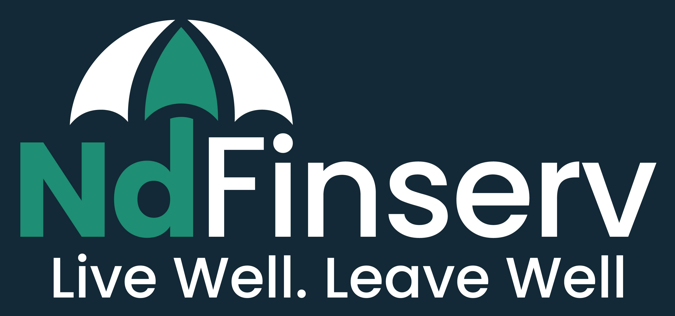Life insurance is one of the most powerful tools for financial security, yet millions of Americans remain underinsured. Among them, Millennials — those born between 1981 and 1996 — are facing a significant coverage gap. While they are often characterized as financially stressed and burdened with student debt, many Millennials still lack adequate life insurance, even as they face growing financial responsibilities. In this article, we’ll explore why Millennials are underinsured, the consequences of this gap, and how they can bridge it for better financial security.
The Millennial Insurance Dilemma
The Numbers:
According to a 2023 study by the Insurance Information Institute, only about 4 in 10 Millennials have life insurance. This is in stark contrast to older generations — like Baby Boomers and Gen X — where a majority maintain some form of coverage. Furthermore, many Millennials who do have insurance are often underinsured, with the average life insurance coverage falling far short of the amount needed to provide financial protection for their families.
A 2021 LIMRA study showed that Millennials, on average, have life insurance policies worth about $125,000, which is well below the recommended coverage needed for most individuals in their age group. The typical suggestion is for a policy that provides 10 to 12 times your annual income to cover lost wages and future expenses for dependents.
Why the Gap?
- Financial Stress:
Millennials face financial pressures that make life insurance a low priority. Many are burdened with student loan debt, credit card bills, and rising living costs, making it difficult to see life insurance as an immediate need. - Perceived Expense:
Many Millennials assume that life insurance is unaffordable. According to a survey by Life Happens and LIMRA, nearly 60% of Millennials think life insurance is too expensive, but in reality, term life insurance can be quite affordable. For a healthy 30-year-old, a 20-year term policy with $500,000 in coverage might cost as little as $25-$30 per month. - Misunderstanding the Value of Life Insurance:
Millennials often underestimate the importance of life insurance because they feel invincible or think that life insurance is only for those with families or older individuals. However, even those without dependents could benefit from life insurance to cover outstanding debts or to leave a legacy for loved ones. - Changing Family Structures:
Many Millennials are waiting longer to marry or have children. As a result, life insurance might not be a top priority in their early adulthood, when they’re more focused on career growth, travel, or building savings. However, this delay in purchasing insurance could lead to higher costs down the line as premiums increase with age.
The Consequences of Being Underinsured
The consequences of inadequate life insurance can be severe, particularly for Millennials who are starting families or carrying significant debt.
- Financial Burden on Loved Ones:
Without sufficient life insurance, Millennials risk leaving behind their families or dependents with financial burdens. This can include paying off mortgages, student loans, or providing for children’s education. Life insurance is designed to replace lost income and cover these expenses in the event of an untimely death. - Rising Costs as You Age:
If Millennials continue to delay purchasing life insurance, they could face higher premiums as they age. Life insurance rates are generally lower when you’re younger and healthier. By delaying, Millennials may pay significantly more for coverage down the line. - Missed Opportunities for Financial Growth:
Life insurance can serve as a powerful tool for building wealth, especially with permanent policies like whole life insurance or universal life insurance. These policies accumulate cash value over time, providing an additional savings component that can be used in retirement, for emergencies, or as a loan.
Addressing the Gap: How Millennials Can Get Covered
1. Start with Term Life Insurance:
For many Millennials, term life insurance is the most cost-effective solution. With term policies, you only pay for coverage for a set number of years (typically 10, 20, or 30), and the premiums remain fixed for the duration. It’s a great option for young adults starting families or buying homes, offering peace of mind at an affordable rate. https://ndfinserv.com/term-life-insurance/
2. Take Advantage of Employer-Sponsored Life Insurance:
Many employers offer life insurance as part of their benefits package. While this coverage might not be sufficient on its own, it can provide an affordable starting point for Millennials looking to build their insurance portfolio. Additionally, it’s often easier to secure this coverage, as health screenings and approval processes may be simplified.
3. Bundle with Other Financial Products:
Many insurance companies offer discounts when you bundle life insurance with other financial products like auto or home insurance. This can help Millennials save money while also protecting their financial future.
4. Shop Around:
It’s important to shop around and compare life insurance quotes from different insurers. Online tools and insurance brokers can help Millennials find the best rates and coverage options based on their personal needs and budget.
5. Focus on the Long-Term Value:
While term life insurance is a great starting point, Millennials should consider the long-term benefits of permanent life insurance, such as whole life insurance, which builds cash value over time. It may require higher premiums initially, but it can provide financial security and a wealth-building tool in the future. https://ndfinserv.com/whole-life-insurance/
Conclusion: The Time to Act is Now
For Millennials, life insurance isn’t just for the older generation. It’s a critical tool for financial planning, helping to protect families, cover debts, and ensure peace of mind. While many Millennials face financial challenges, the good news is that there are affordable life insurance options available that can fit into their budgets. By taking proactive steps now, Millennials can secure their future, protect their loved ones, and build a legacy that lasts for generations.
Now is the time to act — don’t wait until it’s too late to make sure your family is protected.
Nnamdi Uzor





